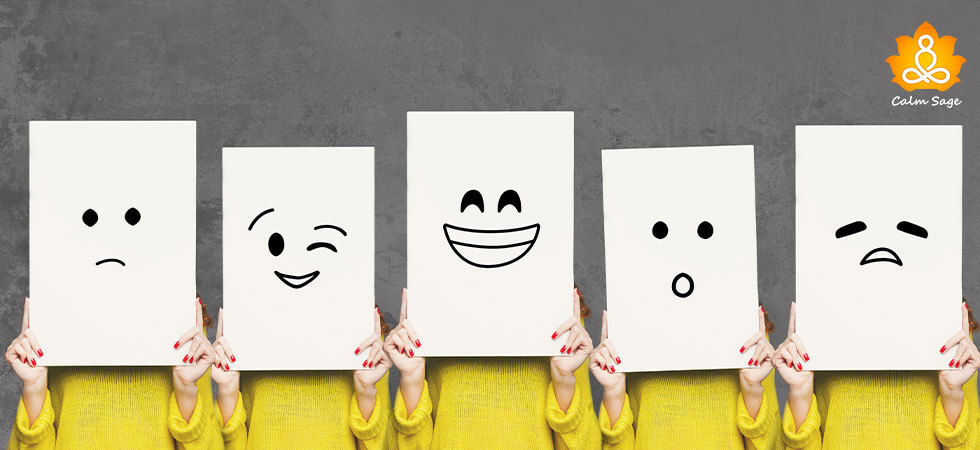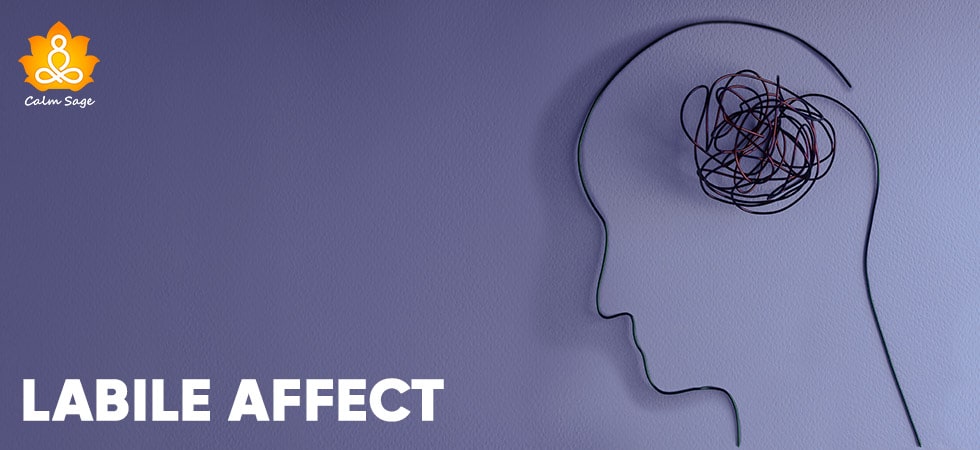How To Tell If You’re Emotionally Repressed? (Signs And Tips To Know)

Emotional expression is how we know what our feelings are and what others are too. It doesn’t come as a surprise when we suppress some of our emotions. I mean, you can’t exactly express the pain of a breakup during a work presentation now, can you? The right thing to do would be to release those repressed emotions, later, in the healthiest way possible. Maybe through journaling.
At least, that’s what I do! However, emotional repression becomes a problem when we don’t allow healthy emotional expression. Not only do you repress your emotions in public, but you also don’t allow yourself to express them even when alone.
In simple terms, repressed emotions are emotions we unconsciously avoid feeling or expressing. These aren’t exactly suppressed emotions but are those emotions that we either don’t get a chance to healthily express or we don’t allow ourselves to express them.
Repressed emotions don’t disappear but can return with vengeance through psychological or physical symptoms, later.
Let’s take a look at the signs of repressed emotions and how you can stop repressing emotions.
How To Tell If You Have Repressed Emotions?
One of the most interesting signs that can tell you of emotional repression is that you don’t like it when someone asks you about how you’re feeling. This seemingly innocent question can leave you feeling defenseless, confused, and possibly annoyed.
If you have repressed feelings, then you constantly struggle with understanding your emotions in almost every situation or aspect of your life. So if you feel like you can be affectionate and loving to your siblings but then can be cold or void of emotions towards your colleagues, then it could just be a case of workplace anxiety or something else.
Here are other signs that can tell you if you’re struggling with emotional repression;
- You feel uncomfortable around emotional people
- You secretly think that anger and sadness are “bad emotions”
- You rarely cry or get angry when you feel upset or rage
- You feel “fine” all the time and view yourself as an easygoing person
- You have moments when you heavily rely on hobbies or other distracting activities than understand what you’re feeling
- You have moments when you’re not you enjoy but you let them happen
- Your thoughts are mostly about criticizing others or negative self-talk
- You feel that you should be in control of things in your life
- You rarely open up to others and even if you do you hide your true self from them
- You struggle with intimacy and have a fear of intimacy
- You may try to make others feel better about themselves but do not give yourself the same opportunities
- You never say anything when something bothers you but plan to do something about it later
Other signs of Repressed Emotions you Must aware of;
- You feel tired for no reason at all
- You experience mild depression or mild anxiety symptoms
- You are stressed all the time
- You have low self-esteem
- You struggle with brain fog and forgetfulness
- You turn to self-destructive behaviors such as overeating
- You have a low immune system and get sick easily
- You struggle with getting a good night’s rest
Why Does Emotional Repression Happen?
Emotional repression can be related to your childhood trauma or negative experiences you have come to relate to your childhood. What we, as children, learn from our caregivers stay with us for a long time. If your parents or caregivers have rarely talked to you about feelings, encouraged you to express your emotions, or normalized emotional expression, then it could have contributed to your emotional repression.
Adults with repressed feelings feel disconnected from their emotions and you’re likely to have repressed feelings if, at any point in your life, an adult has judged you for your feelings or invalidated your emotions.
We all experience strong emotions and for the most part, it’s those strong emotions that are repressed. Especially when these emotions are;
- Sadness
- Anger
- Frustration
- Fear, and
- Disappointment
To us, these emotions are the ones we associate with “negative” or “bad” emotions. It is believed that if we express these emotions, we might be judged. If you’ve ever heard these phrases growing up, then it could have also contributed to your repressed emotions;
“There’s nothing to be sad about.”
“You should be thankful.”
“You should learn to calm down.”
Many times, it’s the lack of acknowledgment of negative emotions or emotions that aren’t considered “normal” that we learn to repress our emotions. It would be easier to express emotions without fearing judgment or criticism from others only if the emotions were validated and accepted as they are.
How To Stop Repressing Emotions?
If you have signs of emotional repression, then the first step could be talking to a professional counselor. A therapist can help you figure out the causes of your emotional repression and provide you with support and guidance to address the causes and move on.
Therapy can also be a safe space that can allow you to understand your feelings, get comfortable with your emotions, and more importantly learn how to correctly express them.
One of the ways that can help is Emotionally Focused Therapy (EFT). This therapy focuses on emotional expression and helps you regain the ability to relate to others and express emotions healthily.
Other things you can do to stop repressing emotions can include;
- Check-in with yourself and see how you feel at this moment. If you can’t speak about your emotions, then try to use colors, phrases, or songs, you can find that match your mood.
- Use “I” statements to express what you’re feeling. For example, try saying, “I feel angry” “I feel frustrated,” “I feel sad” or “I feel disappointed” These statements can help you clearly define your feelings.
- Focus on positive feelings and emotions for a while. The aim is to feel comfortable with emotions, it doesn’t matter if they are positive or negative. If your focus is on positive emotions then it’s also OK.
- Let go of self-judgment and accept what you’re feeling as it is. Instead of judging or criticizing yourself for feeling what you are, try explaining the reason. For example, “I feel disappointed because things didn’t go as I had planned.”
- Develop a habit to name and share your emotions with your safe people. Let yourself speak about your feelings and emotions with people you trust and encourage them to do the same.
Final Thoughts…
It’s OK to want to avoid negative emotions but it’s NOT OK to let them fester until they become repressed. Many people feel afraid of these emotions, but instead of ignoring them maybe try embracing them. Learn to become more comfortable with your emotions – even if they are negative. If you are struggling with emotional repression, then you can connect with a professional and seek help for it.
I hope this article helped you. For more, you can write to us at info@calmsage.com or DM us on social media. You can also share your thoughts and tips in the comments section below.
Take Care!




















